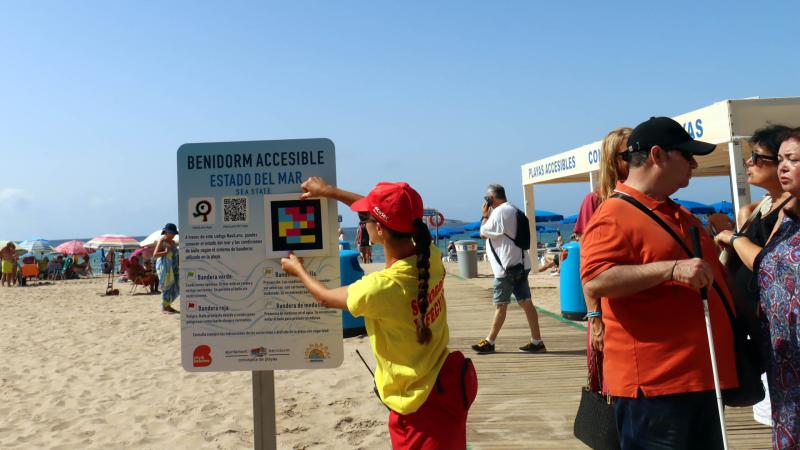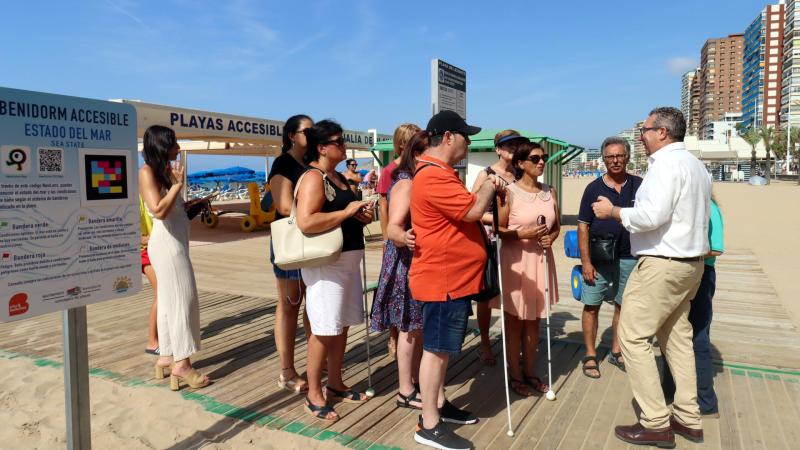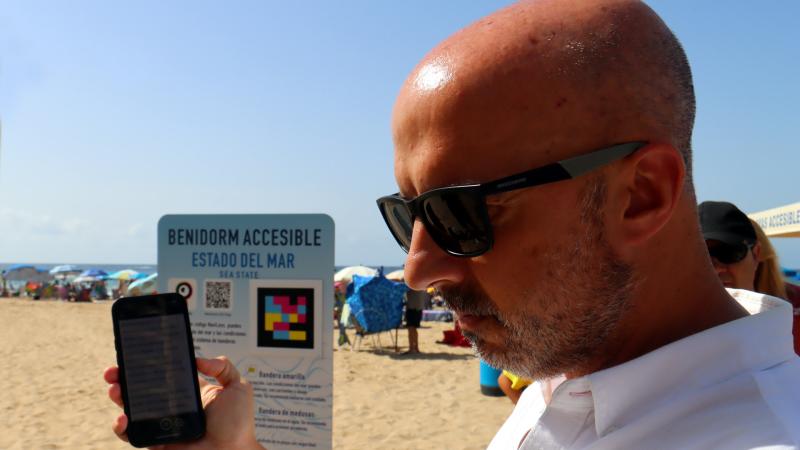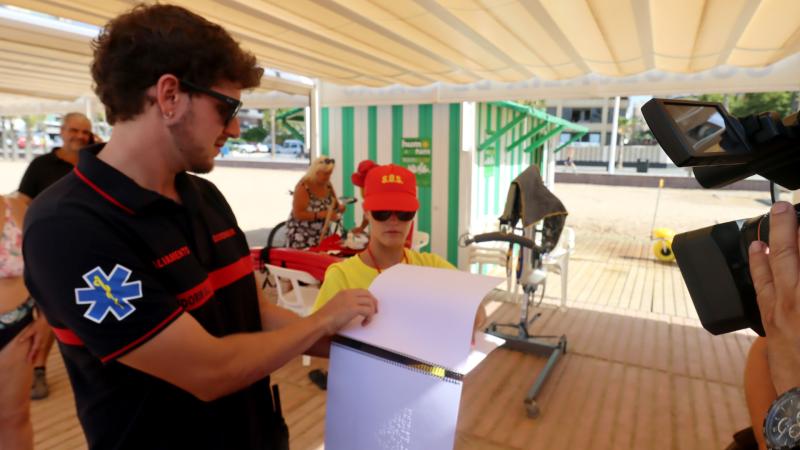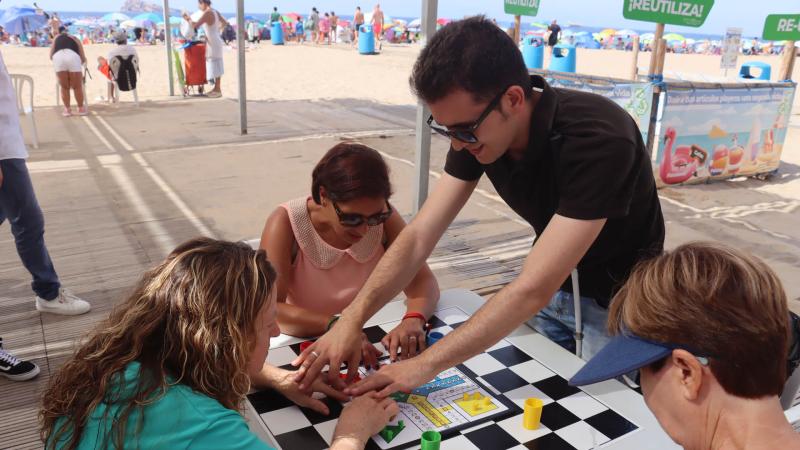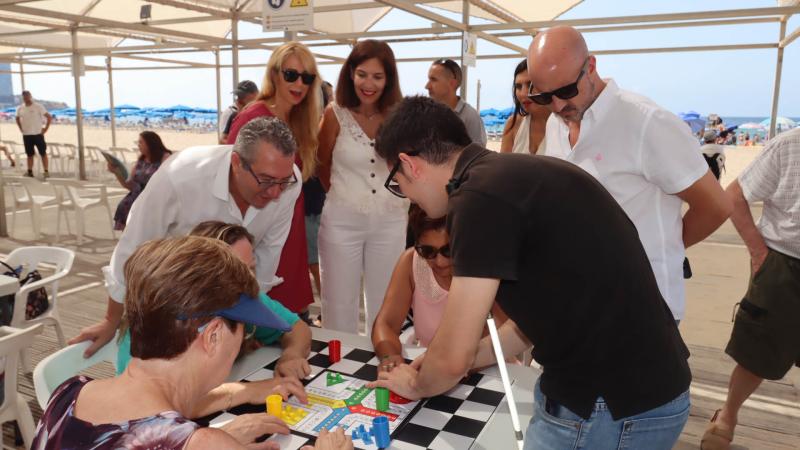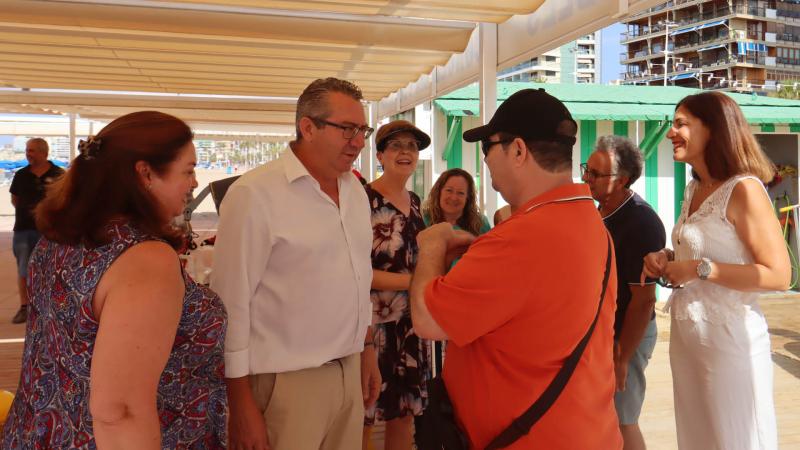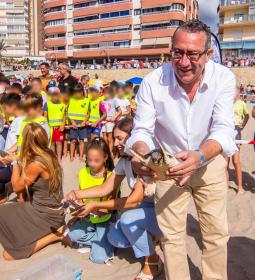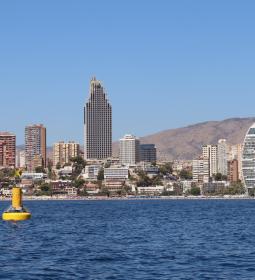The system, a pioneer on the Spanish coast, allows visually impaired users to see the color and changes of flags in real time during their stay on the beach
Benidorm adds NaviLens codes to its beaches to inform blind people about the state of the sea
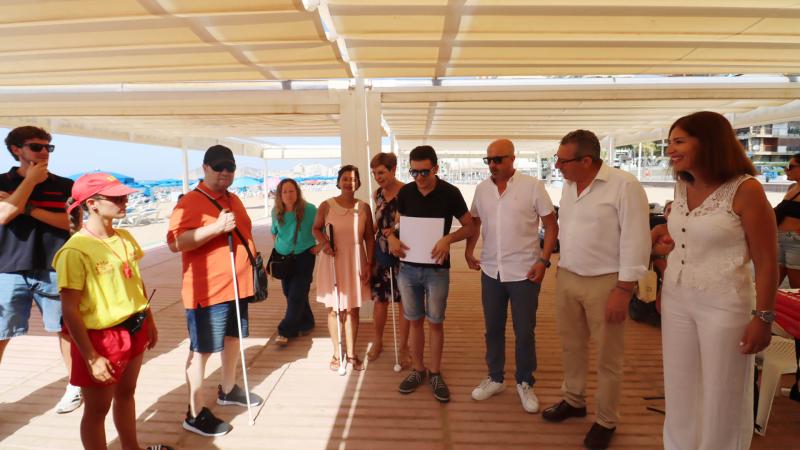
Benidorm City Council, through the Department of Beaches, has implemented a new information system on the city's beaches to make them even more accessible to people with visual impairments. These systems consist of posts equipped with NaviLens codes that allow users to see the colour of the flags flying at each section, the state of the sea, and any changes that may occur during their stay on the beaches. The aim is to "further improve accessibility, safety, and the experience" for visitors.
This initiative, a pioneer along the entire Spanish coast, was presented this Wednesday by the city's mayor, Toni Pérez; the Councilor for Beaches, Mónica Gómez; the regional director of ONCE, Vicente Vázquez; as well as other municipal councilors and users of the organization, who were able to learn firsthand about its operation and other services adapted for people with visual impairments that have also been implemented on the beaches. Specifically, a Braille translation of the regulations for the use of accessible beaches, which is now available at all three locations in the city, as well as games and reading materials adapted for people who are blind or partially sighted in the beach libraries, so that "they can also find materials adapted to their abilities and spend a pleasant time reading and playing games like any other user," the mayor stated.
In this way, beach library users can now enjoy traditional games such as Parcheesi, cards, dominoes, and chess adapted for people with vision impairments; these games have been acquired by the Department of Historical Heritage, which also plans to increase the Braille library collection available in these reading spaces on the sand shortly.
Toni Pérez emphasized that the goal of these three initiatives is "to ensure that everyone, regardless of their abilities, can enjoy our beaches on equal terms" and that they are "the result of the work and ongoing collaboration with the ONCE Foundation to make the beaches, and also the city as a whole, an increasingly accessible and inclusive destination." He also highlighted the collaboration with the beach concessionaire, RA Benidorm, in the actions being undertaken to make the city's beaches increasingly inclusive.
The mayor recalled that the city was "one of the first to introduce codes for colorblind people on beach flags" and explained that the incorporation of these codes to report on the state of the sea represents "taking a further step, once again leveraging technology and innovation and putting it at the service of people, to guarantee something as basic as their enjoyment and safety when they visit our beaches."
As part of this initiative, four information posts have been installed along Poniente Beach, three in Levante Beach, and one in Mal Pas Beach. These posts are located next to the flagpoles where the flags reporting the status of the bathing area are flown daily: green, yellow, red, or jellyfish.
This service is very simple and is implemented by the lifeguard service workers who place and update the colour of the flags along each stretch of beach. In this case, along with the corresponding flag, these workers have different NaviLens codes, which they place on the posts next to the flags once they have been raised. When the NaviLens user walks along the beach or promenade, their mobile phone sends them an alert message, and when activated, they receive voice-over information about the state of the sea, the colour of the flag currently flying, and any alerts, as explained by Toni Pérez.
Likewise, if any changes in the sea state occur during your stay in the area, you will receive a new message informing you in real time of the current wave colour.
The mayor indicated that "until now, this communication was made through ONCE early in the morning so that the organisation could inform its users, although not at this level or with such detailed or real-time information as we will be able to offer now."
For his part, the director of ONCE in Marina Baixa, Vicente Vázquez, described the incorporation of this service as "an exponential leap" and, on behalf of the organisation, thanked the City Council "for its active listening so we can improve in aspects that make our daily lives much easier and promote inclusion." He also emphasised that this system is "part of that variable that the Blue Flag prescribes when it comes to identifying a beach as accessible, because the differential value lies in everything you have compared to others, and in this case, Benidorm is once again at the forefront."
Vázquez also emphasised that "Benidorm is a powerful tourist destination, which speaks for itself, but initiatives of this type achieve permanence, safety, continuity, and, above all, the word of mouth of its users." Thus, he emphasized that "the value placed on the beaches, and especially on their usability, not only by making them accessible so we can learn about the flags and avoid any risks they may cause, but also by offering adapted leisure activities, allowing us to play board games, read a book in these shaded areas, well, for us, they represent a important leap in our quality of life."
A system with a strong presence in the city
The NaviLens people-guiding code system has been gradually implemented in numerous locations in Benidorm, as part of the municipal commitment to accessibility and inclusion. Currently, in addition to the beaches, it is also present in the streets of the Old Town and on Benidorm's new signage, in the city's tourist information brochures, and, increasingly, in municipal and private communications.

